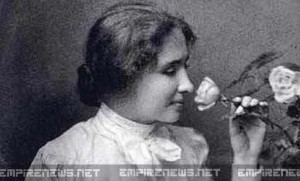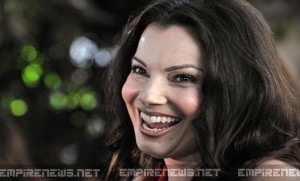John Cadbury has his famous chocolates, William Colgate’s toothpaste is a household name, and now, Helen Keller has a driving school named after her.
The first blind and deaf woman to earn a bachelor’s degree in the United States was author, humanitarian and educator Helen Keller. Born in 1880, Keller overcame the effects of “brain fever” at the age of 2, which left her without sight or hearing. What would have held others back only fueled Keller to overcome these “disabilities” and inspire millions throughout the world.
“Tuscumbia is her birthplace, and we’re proud of her,” says Margaret Cullen, co-owner of what was known as Cullen’s Learn-2-Drive up until last month. “She’s always been my hero,” said Cullen, “and I wanted to pay her tribute.”
Cullen’s “tribute” has made headlines at the expense of the 58-year-old driving instructor’s school, and the town of Tuscumbia.
“I never meant for this thing to be taken the way it’s been taken,” said Cullen. “All of these prank calls and such have started, and I don’t appreciate them, not one single bit! Helen Keller met Eleanor Roosevelt. There’s nothing funny about that!”
Prank calls have only escalated as word of the school’s renaming has spread.
“I had a man call up and impersonate a guide dog over the phone. He asked me if he could come in and help his owner learn how to drive. He disguised his voice and made a lot of “ruff-ruff woof-woof” words and I heard lots of giggling in the background. Distasteful and disrespectful, I say. I hung up but they just called back again, this time pretending to be ‘Toonces,’ that cat that could drive a car on that comedy show I used to watch. I don’t even know if there is such a thing as that. Who has the time to train a cat?”
Local CW affiliate WHDF-TV assigned reporter Carl Lucerne to cover the story as a local feature. “I had no idea this little local story was going to blow wide open,” admitted Lucerne. “When I mentioned to Mrs. Cullen that the story did have an ironic kind of humor about it, she told me that people had become ‘too mean’ these days. I asked her what her husband thought about the sudden notoriety brought to the town and to the driving school, and she said that the two weren’t speaking at the present time.”
“My husband and I are not discussing it right now,” said Cullen. “He thought the calls and attention we were getting were funny, and said ‘I told you so’ when I first came up with the idea of renaming the school. He said ‘don’t mess with the name,’ but I saw things differently, and just wouldn’t listen.”
“On the serious side, many blind people are asking us if we can teach them how to drive, but we aren’t equipped for that. I suppose it can be done, but we don’t have that kind of technology to do it,” said Cullen. “I read in the paper last month that some designer eyeglass company in China named their eyeglasses after Helen Keller. Fancy designer frames that I can’t afford, but I didn’t see that as a joke. I thought it was a nice tribute. It was like saying she could see beyond all her limits. That’s all I wanted to do, but now this thing has turned all wrong. It’s a shame,” she added.
Cullen plans to turn a deaf ear to the ridicule her company is facing. “This town and our school are not laughingstocks,” she said. “I’m just going to pretend I don’t see or hear these mean things. After all, I have a business to run,” she said.
Cullen has no plans to rename the school or revert back to the original “Cullen’s Learn-2-Drive,” a town institution since 1971.
“The signs and cards have been printed,” she said. “What’s done is done!”































